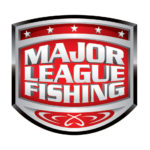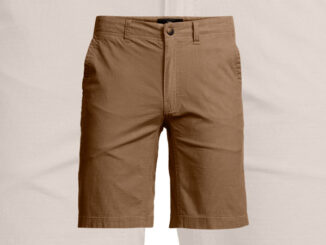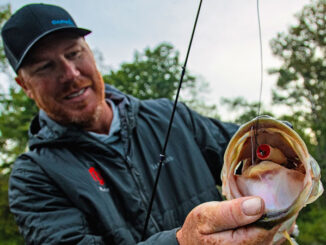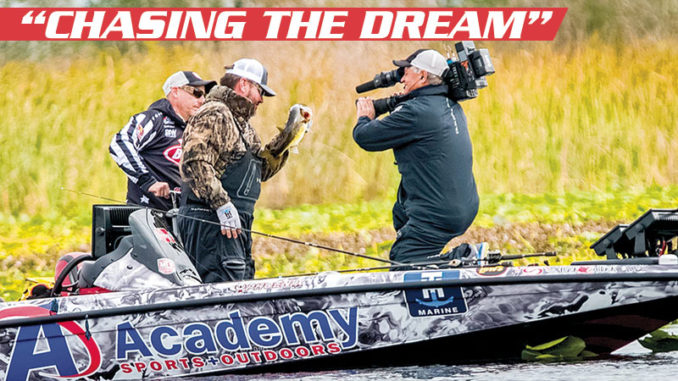
Anglers from the Sportsman’s Paradise can hang with anyone, but they’re only beginning to make a big impact on national tournament trails.
For decades, the measure of success for a professional bass fisherman rested on making it to the Bassmaster Classic, the “World Series of Bass Fishing.” Getting there was difficult. Winning was even more difficult. Making a living at it was, well, almost impossible.
One thing was not discussed very often, but it was obvious to serious followers of pro bass fishing. There have been very few bass pros from the state that self-identifies as the Sportsman’s Paradise: Louisiana.
But things are changing.
In 2019, 48 anglers from Louisiana are regularly fishing one of the three big circuits — Major League Fishing (MLF), Bass Anglers Sportsman Society (BASS) or the Fishing League Worldwide (FLW). Even more Louisiana anglers fish smaller circuits or compete as co-anglers in bigger events.
Major League Fishing upped its game and opened the Pro Bass Tour in 2019 with 80 of the top fishermen in the country, opening up new spots for more anglers on the other circuits, and it even led those groups to make more angler-friendly changes to encourage new participation.
MLF is a made-for-television circuit where anglers don’t have to put up entry fees but still get top prize money. The initial group was by invitation and based on fish-catching results.
Hackney makes the move
Greg Hackney of Gonzales was one of the 80. Hackney, 45, knew the move was a risk, but he left this “old job” of 20 years fishing other circuits and signed on. Two other Louisiana anglers, Gerald Spohrer of Gonzales and Cliff Crochet of Pierre Part, are also 2019 MLF participants.

“The cool thing about MLF is that it has raised the bar in pro bass fishing,” Hackney said. “Entry fees, cost of equipment, travel and the like skyrocketed the past few years. The prize money paid to anglers did not. In MLF, there isn’t an entry fee; events are paid for through sponsors. They film all of our events and show them live from beginning to end. Fishing fans can see all the action like they are in the boat. They get to know the ups and downs of a day in the boat. Every angler gets exposure on TV. The prize money is what anglers deserve.
“We work hard at this; it’s grueling. We fish in some conditions that are just downright nasty. Our families have made a lot of sacrifices for us to do this. What we are doing is taking the sport of pro bass fishing to the next level.”
Hackney is already an all-star in the bass-fishing game.
He has the longest resume, with more dollar signs attached, than any other active Louisiana pro. He is the only bass angler in history who can claim to be a World Champion (He won the 2018 General Tire World Championship.), an FLW Cup champion (2009) and a BASS Angler of the Year (2014) And, had already qualified for the 2019 MLF Championship at the time of this writing. He has 11 wins, 84 top-10 finishes and more than $3.6 million in career winnings. He feels strongly that there’s lots more to come.
New opportunities
“This opens the door for a lot of new anglers at every level,” he said. “I look for increased interest from Louisiana. We are already seeing that this year. Look, we’ve got some of the finest bass anglers in the country right here, but frankly, there just hasn’t been a good financial opportunity for them.
“Establishing MLF upped the game and is making the other circuits better, too. Before this year, there were only three ways a young angler could come on the scene and make it. You had to have really good sponsors right out the chute; you had to come from a wealthy family or you had to hit the jackpot, winning right off, to survive.”
“You know, the state of Louisiana has as many bass fishermen, good bass fishermen, as anybody out there. But you’ve got to have that dream,” he said. “There’s a lot of blood, sweat and tears you’ve got to shed. But at least now, if you have the passion, the dream, there are going to be more opportunities.”
Getting younger anglers involved
Hackney said systems are being put in place where kids can start competitive fishing in high school and college and up their game as they move to each new level. Hackney has two sons, 18 and 15, who love to fish, but until this year, he has never talked about pro bass fishing as a career for either. He didn’t want them and their families to jump through the hoops and endure the hardships he has had to. Now, if they’ve got the drive, they have a better chance to make a living at it, he said, especially if they are good enough to reach the major leagues at MLF.
Hackney won his first tournament at age 11. He won team tournaments fishing with his father and has won trucks, boats and $100,000 prizes in tournaments, but he remembers the day when he knew he was going to be a pro bass angler.
“Dad took me to the 1984 Bassmaster Classic in Pine Bluff on the Arkansas River,” he said. “The legendary Rick Clunn set the all-time record for pounds caught. It was my first impression of a big tournament, and when he won and got handed that check for $40,000 for bass fishing, I said, ‘Wow! He got paid that much for bass fishing?’ That’s what I’m going to do.”
He also remembers a funny anecdote from that day that still sticks with him related to the financial mentality of fishermen.
“I’m there walking around the show, and they had one of the rigged-out Classic boats like everybody was fishing in,” he said. “It was $15,000. Some man walked up and said he was going to buy one of those and pull it home with his $1,000 truck. I’ll always remember that.”
Spohrer weighs in
Spohrer, 37, fishes the MFL circuit out of Gonzales. He sees the new trend in bass fishing as all positive and long overdue, as well. He’s only in his third year as a tour-level pro, but he has already won more than $215,000 on the water.
“We were going out to high schools and college kids and telling them they should pursue bass fishing and all the opportunities it offered. We are doing that right. But we didn’t have everything straightened out at the top,” he said. “MLF’s Pro Tour is changing that, and I can now encourage youngsters with no hesitation. The concept is that when you reach the highest level, you don’t have to pay an entry fee. The sponsorships are good enough to reward the anglers involved, and with all the TV coverage that every angler gets, you make a good living.”
Spohrer never hesitated to join the new league when he had the chance. Even though there were risks, the rewards and what it is doing for the future is worth it.
“We have a three-year contract to fish and build this circuit, then it will include even more people. You’ll have to earn your spot to keep it,” he said.
A dream come true
Like Hackney, pro bass fishing fulfills a dream Spohrer has had as long as he can remember.
“This has been a passion of mine since I was old enough to comprehend what bass fishing is,” he said, who left a high-paying job as a chemical plant worker near Baton Rouge to fish professionally. “When I was first big enough to go fishing, my grandfather took me to Leeville saltwater fishing; I fell in love with it. He died when I was young, and I didn’t get to go anymore, but he had sparked my addiction.
“My dad didn’t fish, but he would take me down the road to neighbor’s ponds and lakes, and I would fish from the bank as long as they would let me, while he sat in the truck listening to the Saints game or something. Freshwater bass became the way for me to get my fishing fix. The more I saw people doing it, and the pros back in that day, the more I knew without a doubt that is what I wanted to do. I never wavered from that.”
Spohrer feels there are many reasons that more Louisiana anglers haven’t chased the dream of pro bass fishing full-time.
“First of all, there are a lot of the best fishermen I’ve ever met who have good jobs and just aren’t willing to give up $125,000 jobs to take that risk, especially the way it has been in past years,” he said. “Second, a majority of the bass fishermen in Louisiana are, for the most part, one-dimensional shallow-water fishermen. That’s just the way fishing is here, unless you spend a lot of time on Toledo Bend. They don’t have the experience in a lot of different kinds of waters like anglers, say, in Alabama or Tennessee. You have to be versatile to be successful in pro fishing.”
Crochet offers good advice
Crochet, 35, agrees with Spohrer and Hackney and encourages anyone with the dream to see it through as far as they can — but adds a serious caution.
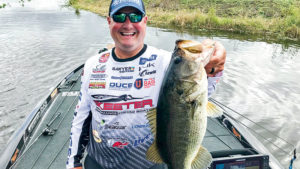
“It’s great that the high school and college anglers are getting into the sport,” he said. “One advantage they have is that they can see a clear path to tournament fishing. lt wasn’t like that when I started out. But no matter how passionate you are and how good you can get, it still isn’t easy.
“My momma and old man always encouraged me,” he said. “When I was out there getting my butt kicked as a kid in the Friday night tournaments, Dad would always say to keep going, keep practicing, I was getting better, and I was just one or two fish away. Just keep grinding. That’s what he said. They never said I couldn’t do that or it’s too far away. It’s why I’m successful today.”
Crochet also said that, as with any sport, youngsters need to get an education, have a backup plan and know that their dream may not work out. It’s a realistic approach from a man who has won $520,677 fishing pro tours after leaving a good job as a sheriff’s deputy to chase the dream.
“Look, I’ve been very successful, but there are younger guys behind me right now wanting to take my place,” he said. “I know that. Even with three major tours, there are still limited spots. People ask if it is harder to get to the top or stay at the top. It’s always hard. It’s an ultimate struggle from day to day. It’s super hard. There’s always somebody chasing the dream as hard as you are.
“Here’s the deal. I know this is true for me, and I bet 100 percent of pro fishermen would say the same thing if they are honest. I look back, and it’s like this: if this fish comes off or that fish comes off or somebody else fishes a spot before me on a certain day, I’m not even here.”
Here they come…
In the meantime, more Louisiana anglers are making noise on other circuits, like the state’s three top anglers predicted.
Derek Hudnall of Baton Rouge made his first appearance in the Bassmaster Classic this year and finished 33rd.
BASS held its Central Open on Toledo Bend, and Darold Gleason of Many won the $42,800 first prize. Logan Latuso and Stephen Mitchell of Trout finished third and fourth, respectively. Nick LeBrun of Bossier won the $100,000 FLW All-American on Cross Lake.
Young guns like Brett Preuett of Monroe have joined the BASS Elites Series after huge success in college at the University of Louisiana Monroe. Former college teammates Tyler Stewart and Hunter Freeman are rookies on the FLW Tour.
It’s all part of the dream, seeing more anglers from the Sportsman’s Paradise bring bass to the scales and take checks to the bank.
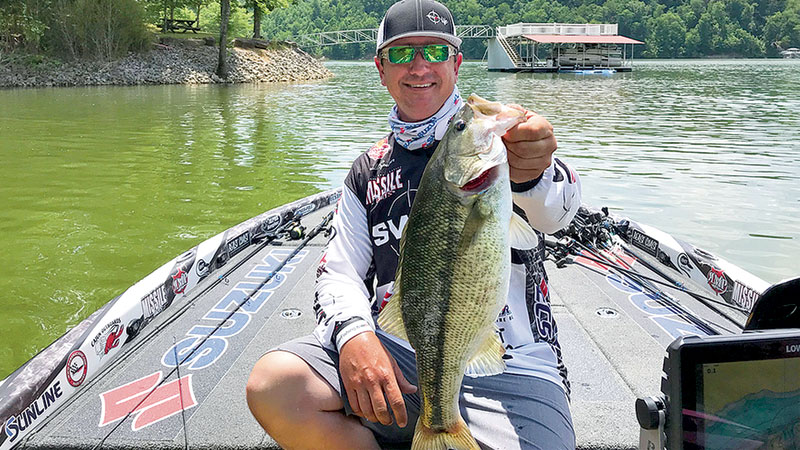
How to make a go of it as a pro bass fisherman
It isn’t funny to pro bass fishermen out there trying to make a living catching bass, but there’s an old joke about pro fishing and making a living. it goes something like this:
“There’s only one way to become a millionaire as a professional bass fisherman. That’s to start out as a billionaire.”
Bass pro Gerald Spohrer agrees, but he is hoping some of the recent changes and additional opportunities for pro fishing will change that.
“You can’t make a living just on money you make in tournaments, except in a few rare instances,” he said. “It takes a lot of sponsorship help, and that is what separates a lot of folks. There are tons of great fishermen, but if you don’t know how to promote yourself, the sport and your sponsors, it’s very hard to make it.”
Louisiana anglers who are chasing the dream
Bass fishermen of all ages are “chasing the dream” of catching bass for cash and prizes. The range of events goes from club tournaments to organized regional circuits and beyond.
In 2019, that “beyond” includes three major national pro bass circuits in which 48 competitors from Louisiana are involved.
Here are those anglers, as identified by the circuits they are fishing:
Major League Fishing (MLF)
Fishing League Worldwide (FLW)
 Randy Allen, Gilliam
Randy Allen, Gilliam- Randy Despino, Colfax
- Dakota Ebare, Denham Springs
- Hunter Freeman, Monroe
- Nick Lebrun, Bossier City
- Chris Neau, New Orleans
- Drew Ratley, Shreveport
- Clark Reehm, Elm Grove
- Tyler Stewart, West Monroe
Bass Anglers Sportsman Society (BASS)
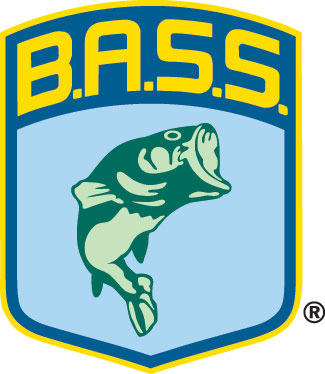 Elite Division
Elite Division
- Quentin Cappo, Prairieville
- Tyler Carriere, Youngsville
- Derek Hudnall, Baton Rouge
- Robbie Latuso, Gonzales
- Brett Preuett, Monroe
- Tyler Rivet, Raceland
- Caleb Sumrall, New Iberia
Open Division
- Chris Babin, Raceland
- Blake Betz, Baton Rouge
- Billy Bilieaud, Lafayette
- Scott Bonvillain, Dequincy
- Gary Caruso, Baton Rouge
- RJ Chandler, Jr.,Vinton
- Jimmy Charbonnet, St. Amant
- Jim Dillard, West Monroe
- Tracy Gautreaux, Raceland
- Darold Gleason, Many
- Jimmy Greer, Jr., Dry Prong
- Alex Heintze, Denham Springs
- Homer Humphreys, Jr., Minden
- Bo Keith III, Haughton
- JP Kimbrough, Bossier City
- Logan Latuso, Gonzales
- Matthew Loetscher, Many
- Cameron Mattison, Bossier City
- Thomas McMillan, Choudrant
- Stephen Mitchell, Trout
- Chad Murray, Vidalia
- Todd Murray, Prairieville
- Dusty Nomey, Jonesboro
- Troy O’Rourke, Natchitoches
- Mike Pharr, Shreveport
- Mark Price, Ruston
- Todd Risinger, West Monroe
- B.J. Usie, Bourg
- Gary Vining, Morgan City
- Chad Wiley, Pineville
Want to know more?
News releases, live videos, tournament results, angler profiles, photos and more stories about bass fishing than you could ever dream of concerning bass fishing are available on the three websites:
The beginning of the dream
Most folks laughed at Ray Scott, an insurance salesman from Alabama, when he headed out in 1967 trying to sell fishermen on the idea of professional bass fishing — putting up entry fees and fishing for money as members of a new organization called B.A.S.S. (Bass Anglers Sportsman Society).
Scott had been bass fishing on Ross Barnett Reservoir near Jackson, Miss., when he had to run to the lake bank because of bad weather. He later recalled sitting in his hotel room when he had the “brainstorm in a rainstorm” that changed modern-day bass fishing.
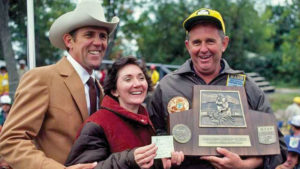
It wasn’t long until Scott was the one laughing — all the way to the First Commercial Bank of Montgomery, Ala. Fishermen around the country were chasing bass for cash, and the sport has steadily grown over the years.
The first time I met Scott, I was a young outdoor writer with the Monroe News Star. I had loaded up my gear and gone to cover a tournament on Toledo Bend in the mid-1970s. When I arrived at Sammy Gill Marina near Zwolle, Scott was sitting alone on the back of an upside-down aluminum boat, talking on the pay phone. When he got off, I asked him if this was where the big bass tournament was going on. We introduced ourselves, and he told me more about where bass fishing was going than I wanted to know. I didn’t even have a place to stay and ended up bunking for the weekend with Scott and Bob Cobb, the editor of Bassmaster magazine, in one of the old A-framed cabins. It was once-in-a-lifetime experience.
It was just the early stage of bass-fishing madness that no one could have ever dreamed of, except maybe Scott. Toledo Bend continues to be a major draw for BASS and other circuits that come to Louisiana for high-dollar bass contests.
Homegrown talent
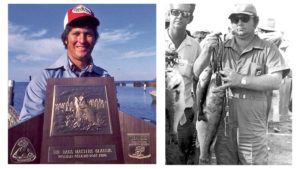
Louisiana fishermen ended up playing a big part in the birth of the sport. In Scott’s first Bassmasters Classic in 1971 on Nevada’s Lake Mead, Bobby Meador of Baton Rouge was one of the qualifiers and even led the event on the first day. Meador went on to host a popular fishing TV show and even directed his own bass fishing circuit in Louisiana. Another Louisiana angler, Al St. Romain of Morgan City, also qualified for that first Classic. Both have since passed away.
The first Louisiana angler to win the prestigious Classic was 25-year-old rookie Jack Hains of Rayne, who won the 1975 event on North Carolina’s Currituck Sound. In 1980, Bo Dowden of Natchitoches won the event on New York’s St. Lawrence River. Both still live in Louisiana. Hains was a crop duster by trade, and Dowden ran a marine dealership.
Since that time, despite many qualifiers, no other Louisiana angler has won that titles. The Classic has come to the state numerous times, the first three on the Louisiana Delta. Davy Hite won the Classic there in 1999; Kevin VanDam won it there in 2001; Mike Iaconnelli won it there in 2003 and VanDam won it there again in 2011. The tournament has been held on the Red River twice, won by Skeet Reese in 2009 and Chris Lane in 2012.
Eyes wide open is the first step to chasing pro bass dream
Somewhere in a small Louisiana town, in a tackle store somewhere by the bass baits or the checkout counter, there’s a kid around 12 years old, quietly standing by the rods and reels asking bass fishermen who come through what they are catching and how they are catching them. The kid convinces his dad, or uncle, or neighbor to take him fishing every chance he gets. He’s soaking up what he can learn from fishing magazines, YouTube videos and TV shows. His eyes are wide open to everything bass fishing.
He wants to grow up and be Cliff Crochet or Greg Hackney or Gerald Spohrer — or any number of bass anglers like them, or maybe just the local tournament bass-fishing legends he keeps hearing about. He’s not chasing the dream, but it’s forming in his head.
Crochet knows.
That was him 20-something years ago, and he said, truth be known, for a lot of others among today’s top pro fishermen. If you want to know how Crochet, from Pierre Part, got into professional bass fishing, get some food and water, set aside about three hours and listen closely to a story that begins with a broken down 3-wheeler. And mind you, it’s not the tale that fully conveys the story. It’s the excitement that Crochet tells it with yet today. It’s that passion that still drives him to learn that new lure, make that next cast, catch that next bass, win that next tournament.
The short version
Crochet grew up around hunting and fishing, like almost everybody in south Louisiana. But it wasn’t until his 3-wheeler broke down that he turned primarily to fishing. That evening, he went into the outdoor shed, got an old rod and reel and caught a 12-inch bass at a neighbor’s pond. He put it in a bucket to prove to his dad that he caught one. He was hooked. He liked hunting. He loved football and sports, but fishing began to get in the way of those pursuits. Bass fishing was the itch that he couldn’t scratch enough to make it go away.
Bayside Tackle in Pierre Part became his new hangout, for a few minutes every few days at first, then for hours on end almost every day after school. He listened to the stories, and when things were slow, he would ask store owner Winston Michel questions like “What’s this bait? How do you fish this bait? When do you use this color worm?”
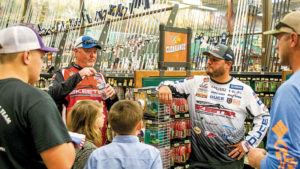
The questions were unending, but he soaked up and stored every answer he got. When Michel took him and his friend, Timmy Templet, fishing, he remembered everything that happened on the water as well. Another successful local tournament fisherman, Kevin Medine, bought the store when Crochet was in high school, and it continued to be his classroom. Medine also took Crochet under his wing on countless fishing trips. Crochet’s dad put a plywood deck on a crawfish skiff and got a used trolling motor so he could have a fishing vessel. But Medine had a big fishing rig with a new motor, and he let Crochet borrow it anytime he wanted.
“It’s funny looking back, but when he did that, I fished every day I could,” Crochet said. “It got to the point that if he wanted to go, he had to come borrow his boat back from me to go fishing.”
Keeping the dream alive
All along, he was hearing stories of legendary Cajun bass fishermen like Al St. Romain and Billy Fryou and dozens more who never ventured far from home but caught more bass than one could imagine.
“But that seemed all so far away,” Crochet recalls. “I could never touch that. Everything I heard was second- or third-hand — or in some far-away place. But I kept fishing. Kept learning to fish. Dreaming about being part of it.”
Then one day, he got to “touch” it. His dad took him to the 1999 Bassmaster Classic in New Orleans. He saw that the dream was really real. People were really doing that.
“Now I’d seen it,” he said. “I still didn’t know how to get there. I didn’t know the path, but I knew it was real, and it was possible, and I knew now, it was here close to my house, not just something far away on TV.”
Long story short, Crochet started fishing BASS Federation events in 2004. He fished other tournaments, like BFL/Walmart events and was on his way, bringing home checks on a regular basis. By 2007, he decided he was ready to step up a notch, and he tried BASS Opens for the first time. He did not cash a check, but he remembered what his dad often told him in early tournaments: he was just a cast away, a bass away, another good fishing spot away from making it. Don’t give up.
And he hasn’t. Not to this day.
